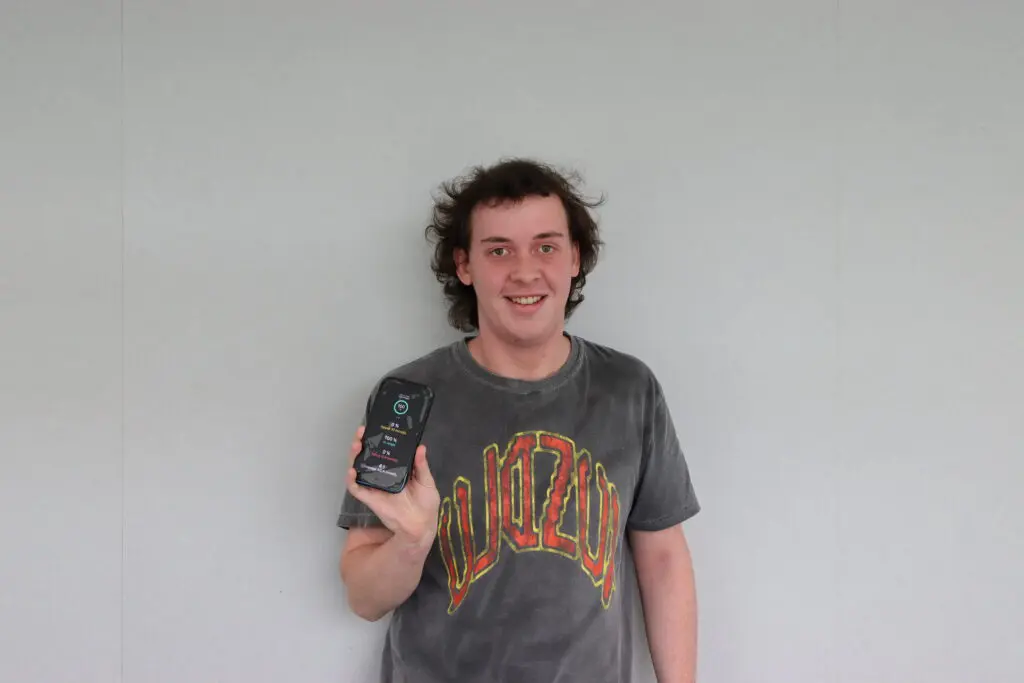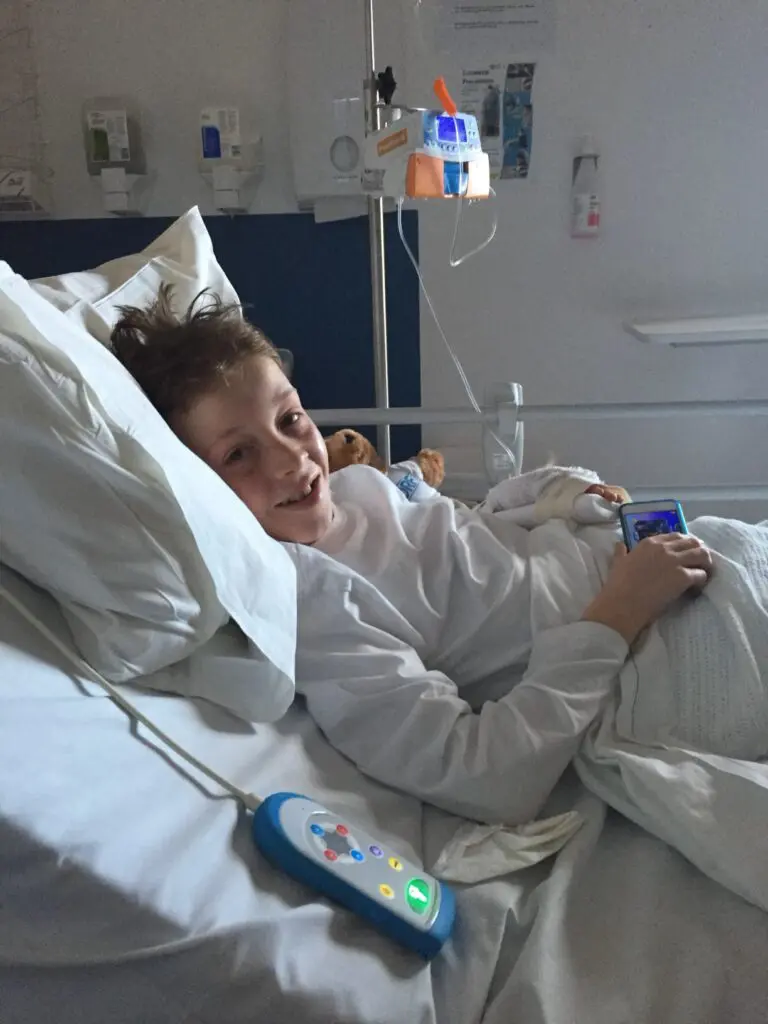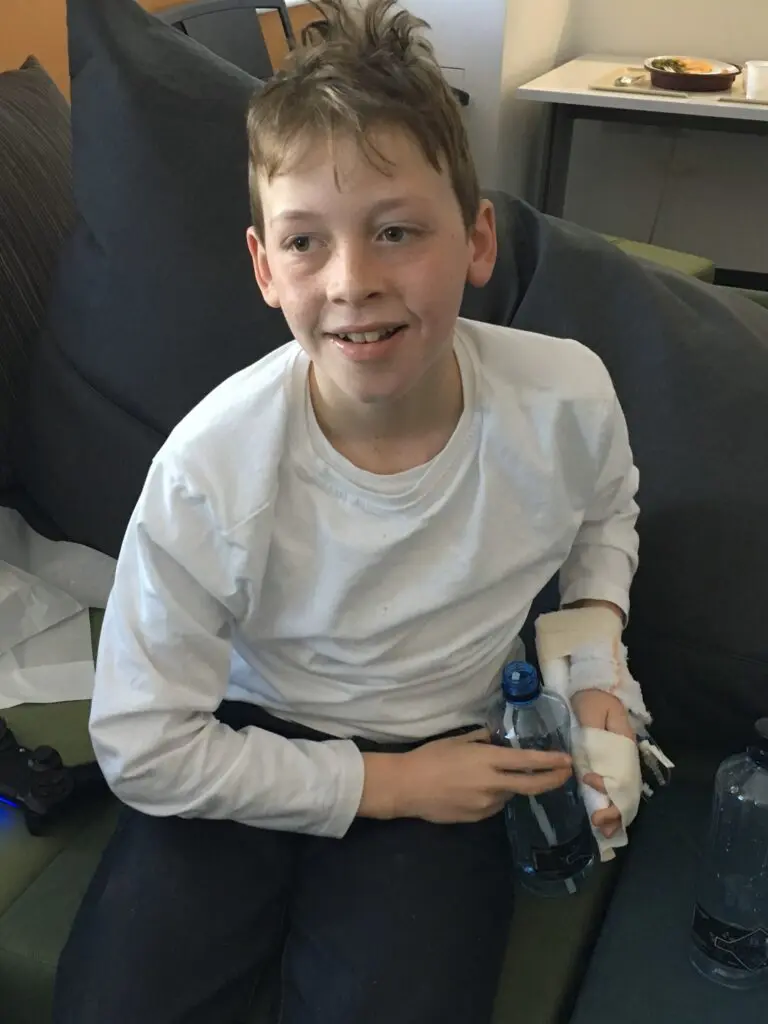
Worrying symptoms that led to a type 1 diabetes diagnosis
When Zach was 10 years old, he was diagnosed with type 1 diabetes (or T1D), after he had been losing weight for six months. His family originally assumed it was because of an increased amount of sport he was playing but they also noticed he was thirsty all the time and was going to the toilet several times a night.
At a Father’s Day dinner, his mother saw that Zach had gone to the toilet three times in the space of 15 minutes. Being a former nurse, she was worried and questioned Zach about his symptoms and booked an appointment with his general practitioner the following day.
A finger prick device known as a blood glucose meter, retuned an extraordinarily high result which placed him in danger of a life-threatening diabetic coma. When his mother told him that they had to go to Royal North Shore Hospital (RNSH) for urgent treatment and confirmation of the diagnosis, Zach recalls “I didn’t know anything about it, I didn’t know anybody with it, and I was really worried I was going to die.”
The pancreas in a type 1 diabetic produces little or no insulin which is needed by their body to function properly. Insulin is vital to convert glucose into energy, and because insulin acts to reduce the amount of glucose in the blood, people with T1D must replace insulin in the body to maintain blood glucose using injections or an insulin pump. Zach was admitted to RNSH and he was placed under the care of paediatric endocrinologist Dr Ohn Nyunt.
“It is a difficult time for patients and families to receive the diagnosis of diabetes,” said Dr Nyunt. “They always have many questions about the future of the patient. At the same time, they need to focus on how to look after a young person with diabetes.”


Learning to manage his T1D
Educating himself about how to manage his diabetes was the hardest part for Zach. Before every meal or snack, he had to test his blood glucose levels with a finger prick and inject himself with the right dosage of insulin. For the first month, his mum helped to wake him up in the middle of the night to test his levels and inject the insulin. Zach then took over the responsibility of managing his diabetes.
His school was very supportive, and the school nurse supervised his insulin injections at recess and lunchtime.
Zach was excited to learn that there was a more convenient way to manage his diabetes, and it was a life changer. A year after diagnosis, when he was at the end of year six, he was fitted with an insulin pump, which is a small waterproof electronic device that is programmed by a continuous glucose monitoring (CGM) system on a mobile phone app.
It meant that Zach had less spots on his fingers as he could see his glucose levels on the app and administer the correct dosage of insulin. The app also alerts Zach when his glucose levels are too high or low and can automatically dose him.
“My diabetes doesn’t stop me from doing anything or playing sport,” said Zach who hopes there will be a cure for diabetes within his lifetime.
Now that he’s 18 and attending university, Zach has moved on from the care of his paediatric endocrinologist, who he fondly remembers for his sense of humour, and helping to put him at ease. Looking back to when he was first diagnosed, he says the healthcare staff were helpful and coached him through his treatment, so it wasn’t overwhelming.
When he’s asked about what’s it like being a diabetic, Zach tells people that it won’t define you; and you can get through it.
There are currently more than 130,000 Australians living with type 1 diabetes and around eight people are diagnosed with type 1 diabetes every day.
If you’d like to support the paediatric endocrinology unit at Royal North Shore Hospital who provide support for children with diabetes, please donate here.
